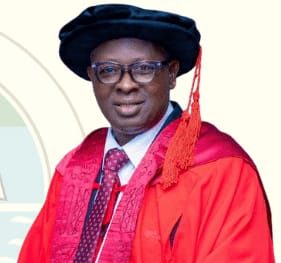
A plea has been made by Professor Sulaimon Akanmu, a Haematology and Blood Transfusion expert at the University of Lagos College of Medicine, urging the Federal Ministry of Health and the National Agency for the Control of AIDS to consider using fourth-generation screening kits for HIV testing. This move is deemed crucial for the country to effectively control the HIV epidemic.
In a recent address during the 14th Inaugural lecture for the 2023/2024 academic session at the institution, Akanmu, who also serves as a Consultant Haematologist at the Lagos University Teaching Hospital, emphasized the necessity of upgrading to more advanced screening tools to combat the spread of the virus.
Delivering his lecture titled, “The virus and the malnourished red cells: It is only a matter of time; Humanity is set to have the last laugh over the virus,” the professor explored the historical challenges of HIV/AIDS and the significant mortality and morbidity rates associated with the disease during its earlier stages.
He highlighted the critical role of anaemia in amplifying the mortality and morbidity linked to HIV infection in its initial phases, underscoring that the presence of anaemia was a strong predictor of mortality from AIDS-related illnesses.
According to Professor Akanmu, anaemia was widespread among individuals with HIV in the early stages of the infection due to the detrimental impact of the virus on red blood cells.
He further explained how the prevalence of anaemia in HIV patients necessitated a revised definition of anaemia specific to those with HIV, different from the standard classification.
Expressing optimism, Akanmu noted the progress made in developing Antiretroviral Therapy (ART) as a beacon of hope in the fight against HIV.
He affirmed that with the effective use of ART by HIV-positive individuals, both Nigeria and the global community could eventually achieve a state where no new infections occur – a critical milestone known as epidemic control.
Honoring the Sustainable Development Goal 3.3 objective to end the AIDS epidemic by 2030, which involves reducing global incidence rates, Akanmu stressed the importance of concerted efforts to achieve epidemic control defined by the World Health Organisation.
Highlighting the life-extending benefits of ART, Akanmu stated, “Effective ART can add up to 33 years to the lifespan of people living with HIV under treatment, with viral load suppression reducing the risk of transmission to less than one person over 33 years.”
He elaborated on the significance of reaching the Incidence Prevalence Ratio of 1/33 as a critical indicator of achieving epidemic control, emphasizing the need for advanced screening kits like the fourth-generation tools to accurately identify new HIV infections.
Noting data from NACA indicating approximately 1.8 million Nigerians living with HIV, with 1.63 million already receiving ARV treatment, Akanmu reiterated the urgency for more effective screening technologies to curb new infections.
Reflecting on his career in haematology and blood transfusion, Akanmu shared his early involvement in HIV Medicine dating back to 1987 when the disease posed significant challenges with limited treatment options.
In praise of Akanmu’s insightful lecture, the Vice-Chancellor of UNILAG, Prof. Folasade Ogunsola, commended his contributions to the field and humanity, acknowledging him as a distinguished scholar.
